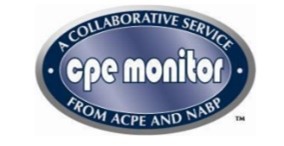Announcer:
Welcome to CME on ReachMD. This episode is part of our MinuteCE curriculum.
Prior to beginning the activity, please be sure to review the faculty and commercial support disclosure statements as well as the learning objectives.
Dr. Betof Warner:
Hi, I'm Allison Betof Warner. I'm the Director of the Melanoma Program at Stanford, and we're going to talk today about First Line Treatment of Metastatic Melanoma After Adjuvant Anti-PD-1.
So starting with a case, we have a 52-year-old woman who came in with a history of stage IIIB BRAF-wildtype cutaneous melanoma 2.5 years prior. She was treated with 1 year of adjuvant PD-1 and completed that about 1.5 years ago, followed with no evidence of disease. And then 2 weeks prior to presentation, felt a nodal mass that was biopsy confirmed to be melanoma. PET scan showed that inguinal lymph node as well as a soft tissue metastasis and a right adrenal gland metastasis with a negative brain MRI. Labs were appropriate to begin checkpoint inhibitor therapy, and treatment was initiated. So let's talk about some of the data here.
So the CheckMate-067 trial was a trial that randomized patients to ipilimumab alone versus nivolumab alone, versus ipilimumab plus nivolumab. And if we look here, this was for checkpoint-naïve patients, but we can see here that we have the overall survival for patients treated with ipilimumab here in gray, nivolumab alone shown here in green, and for ipilimumab plus nivolumab in red, with a median overall survival of 72.1 months for the ipilimumab plus nivolumab arm in this trial.
The treatment-related adverse events in this group, 59% grade 3/grade 4, adverse events for NIVO plus IPI, versus 23% for NIVO, and 28% for IPI.
RELATIVITY-047, again untreated treatment checkpoint-naïve patients randomized to nivolumab plus relatlimab versus nivolumab alone. And you can see here the progression-free survival. So median progression-free survival and the combination arm 10.2 months versus 4.6 months for nivolumab alone.
One of the key differences here is really in the rate of partial responders. So complete responders was 18% in both arms versus 26% partial responders for nivolumab plus relatlimab versus 16% partial responders in the nivolumab alone arm.
RELATIVITY-020 was a trial that looked at patients who had progressed on anti-PD-1 or anti-PD-L1 therapy. And key eligibility for this trial was advanced unresectable or metastatic melanoma, documented disease progression while on a prior PD-1-containing regimen. There were two cohorts here, Part D1 which had patients who had received one prior line of PD-1-containing medications, versus Part D2 which had multiple prior lines of PD-1. And the primary endpoint was safety as well as adverse events leading to discontinuation. We can see the overall survival here. This was the D1 cohort versus the D2 cohort, and you can see the objective response rate in the D1 cohort was only 12%, 9.2% in the D2 cohort.
Now, if we look at fianlimab plus cemiplimab, which are not FDA approved medications but new experimental medications in this setting, we have this trial design, which you can see there was an initial cohort, a confirmatory cohort, both of whom were PD-1 naive, but then a PD-1 experienced cohort of 18 patients. Primary endpoint here was objective response rate. And we can see in the overall cohorts here, this was progression-free survival with a 52% 12-month progression-free survival.
So in summary, here, for most patients with good performance status, we prefer dual checkpoint inhibition over single agent for newly diagnosed metastatic melanoma, nivo plus rela has higher objective response rates and superior PFS to nivolumab, and rates of grade 3/grade 4 immune-related adverse events about 10% higher than with single agent. Patients with unresectable melanoma treated with ipi plus nivo have a median OS of 72.1 months, but grade 3/grade 4 adverse event rates much higher at 59%. And minimal data to date, studying first-line immunotherapy in patients who'd had adjuvant anti-PD-1.
Thanks so much for joining us. I hope this was really informative, and we look forward to future interaction.
Announcer:
You have been listening to CME on ReachMD. This activity is jointly provided by Global Learning Collaborative (GLC) and TotalCME, LLC. and is part of our MinuteCE curriculum.
To receive your free CME credit, or to download this activity, go to ReachMD.com/CME. Thank you for listening.


 In support of improving patient care, this activity has been planned and implemented by Global Learning Collaborative (GLC) and Total CME, LLC. GLC is jointly accredited by the American Council for Continuing Medical Education (ACCME), the Accreditation Council for Pharmacy Education (ACPE) and the American Nurses Credentialing Center (ANCC) to provide continuing education for the healthcare team.
In support of improving patient care, this activity has been planned and implemented by Global Learning Collaborative (GLC) and Total CME, LLC. GLC is jointly accredited by the American Council for Continuing Medical Education (ACCME), the Accreditation Council for Pharmacy Education (ACPE) and the American Nurses Credentialing Center (ANCC) to provide continuing education for the healthcare team. 

